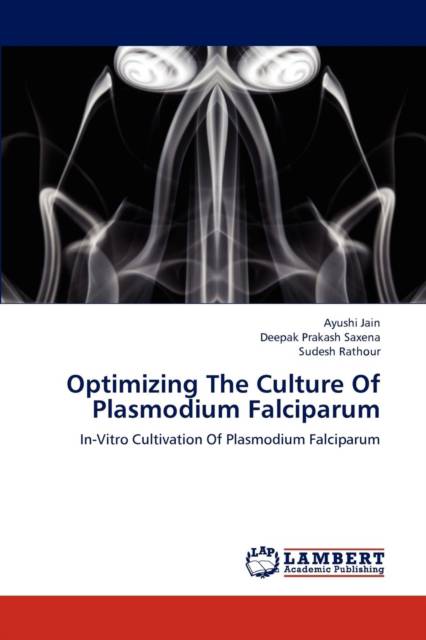
- Afhalen na 1 uur in een winkel met voorraad
- Gratis thuislevering in België vanaf € 30
- Ruim aanbod met 7 miljoen producten
- Afhalen na 1 uur in een winkel met voorraad
- Gratis thuislevering in België vanaf € 30
- Ruim aanbod met 7 miljoen producten
Zoeken
Optimizing The Culture Of Plasmodium Falciparum
In-Vitro Cultivation Of Plasmodium Falciparum
Ayushi Jain, Deepak Prakash Saxena, Sudesh Rathour
Paperback | Engels
€ 48,45
+ 96 punten
Omschrijving
Cultivation of malaria parasites is an important tool for the understanding of parasite biology, biochemistry, molecular biology, immunology, and pharmacology. Malaria represents the world's greatest public health problem in terms of number of people affected, levels of morbidity and mortality. The protozoan malaria parasites (Plasmodium spp.) are transmitted by infected female mosquitoes when feeding on blood. Parasites soon enter liver cells, and after several days of multiplication, are released into the bloodstream where further cycles of asexual reproduction occur, giving rise to the clinical symptoms of malaria. Some erythrocytic parasites will differentiate into presexual forms (gametocytes), which when taken up by mosquitoes in further blood meals, mature into gametes and undergo a sexual cycle Malaria is one of the most important infectious diseases affecting humans particularly in developing countries. P. falciparum an apicomplexan protozoan parasite is the causative agent of the most lethal form of human malaria.
Specificaties
Betrokkenen
- Auteur(s):
- Uitgeverij:
Inhoud
- Aantal bladzijden:
- 68
- Taal:
- Engels
Eigenschappen
- Productcode (EAN):
- 9783659242007
- Verschijningsdatum:
- 12/09/2012
- Uitvoering:
- Paperback
- Formaat:
- Trade paperback (VS)
- Afmetingen:
- 152 mm x 229 mm
- Gewicht:
- 113 g

Alleen bij Standaard Boekhandel
+ 96 punten op je klantenkaart van Standaard Boekhandel
Beoordelingen
We publiceren alleen reviews die voldoen aan de voorwaarden voor reviews. Bekijk onze voorwaarden voor reviews.











